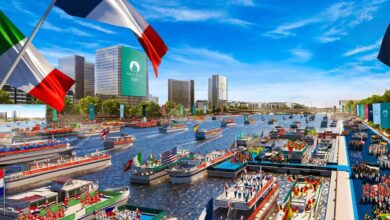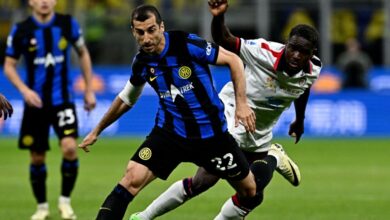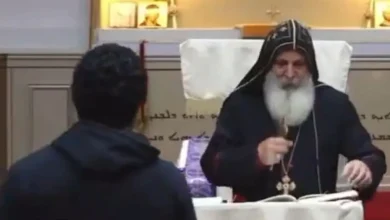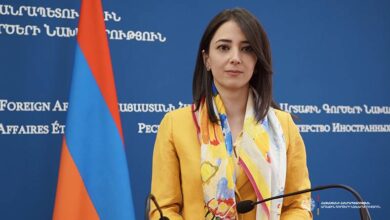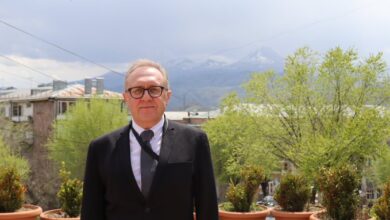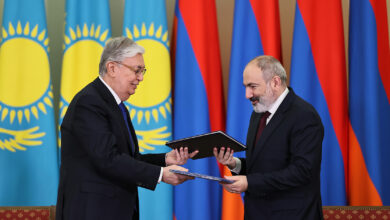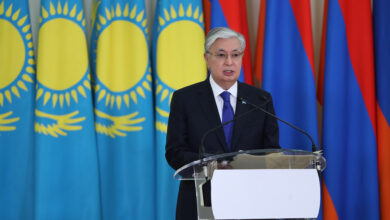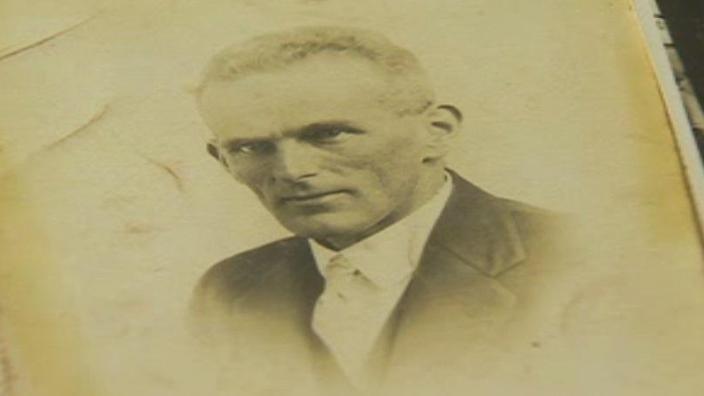
SBS World News Radio – The unsung efforts of the Australians who helped Armenians after the First World War have been celebrated in a special ceremony in Sydney almost a century later.
Brothers John and David Knudsen never met their grandfather John Henry Knudson.
But family mementos tell a story of bravery, sacrifice and compassion.
Sprawled on a dining-room table at David Knudsen’s house in northern Sydney are a series of black-and-white photographs and medals.
And, there is a small, silver identification tag his grandfather wore when he fought in the First World War.
But it is what John Henry Knudsen did after the fighting was over that he is most remembered for.
The New Zealand-born soldier and his Australian wife Lydia, a nurse, travelled to the Middle East.
They wanted to help the Armenian refugees who fled or were marched out of Turkey following the killings Armenia calls a genocide, a term the Turkish government disputes.
The couple joined Near East Relief, an organisation overseeing aid to the multitudes of Armenian refugees.
When the Australasian Orphanage opened in late 1922 in Antelias, Lebanon, they were appointed its directors.
Their grandson John Knudsen says they became parents to about 1,700 Armenian orphans.
“It’s good to see that they made a difference out of a terrible, terrible situation. Those kids, they would have been dead. They would have been in the desert, forgotten … gone … a whole generation of human beings, as far as I’m concerned.”
The orphanage closed in 1929, and John and Lydia Knudsen settled in Australia.
Now, their humanitarian efforts have been recognised in a special ceremony in Sydney, bringing together the descendants of those who lived and worked at the orphanage.
Nora Grigorian says her grandfather, Mihran Terzian, was eight years old when he sought refuge with the Knudsens.
“I have so many emotions. It’s incredibly full-circle for me personally, very personally, the way my grandparents were rescued and saved, their lives were secured by Australians. And they had no idea, they could not have dreamed, that some of their grandchildren and seven of their great-grandchildren would be contributing Australians one day. They’re pictured under the Australian flag in an orphanage far away from their birth home, as well as from Australia. And Australians reached out. And for me personally, it makes me very proud to be Australian, as well as Armenian.”
Author and historian Vicken Babkenian has documented the Australian response to the Armenians after the war in his book Armenia, Australia and the Great War.
He says that response has been largely ignored.
“Unfortunately, generally, particularly in Australia, much of the focus of popular and official narrative is on the heroic military side of our country’s participation during the First World War. But an area that’s been quite neglected and excluded from the narrative is the humanitarian aspect.”
John Knudsen says his grandparents would be humbled by the recognition of their work.
And he says Australia should be doing more to welcome refugees today.
“Look at all those little children. Look at all those refugees that are clinging and all their houses have been destroyed. What’s going to happen to them? The rest of the world’s trying to take them, but we’ve got to do something more. There’s got to be something more that we can do like they tried to do. They tried to make a difference. They did make a difference. And that’s what we need to do.”


